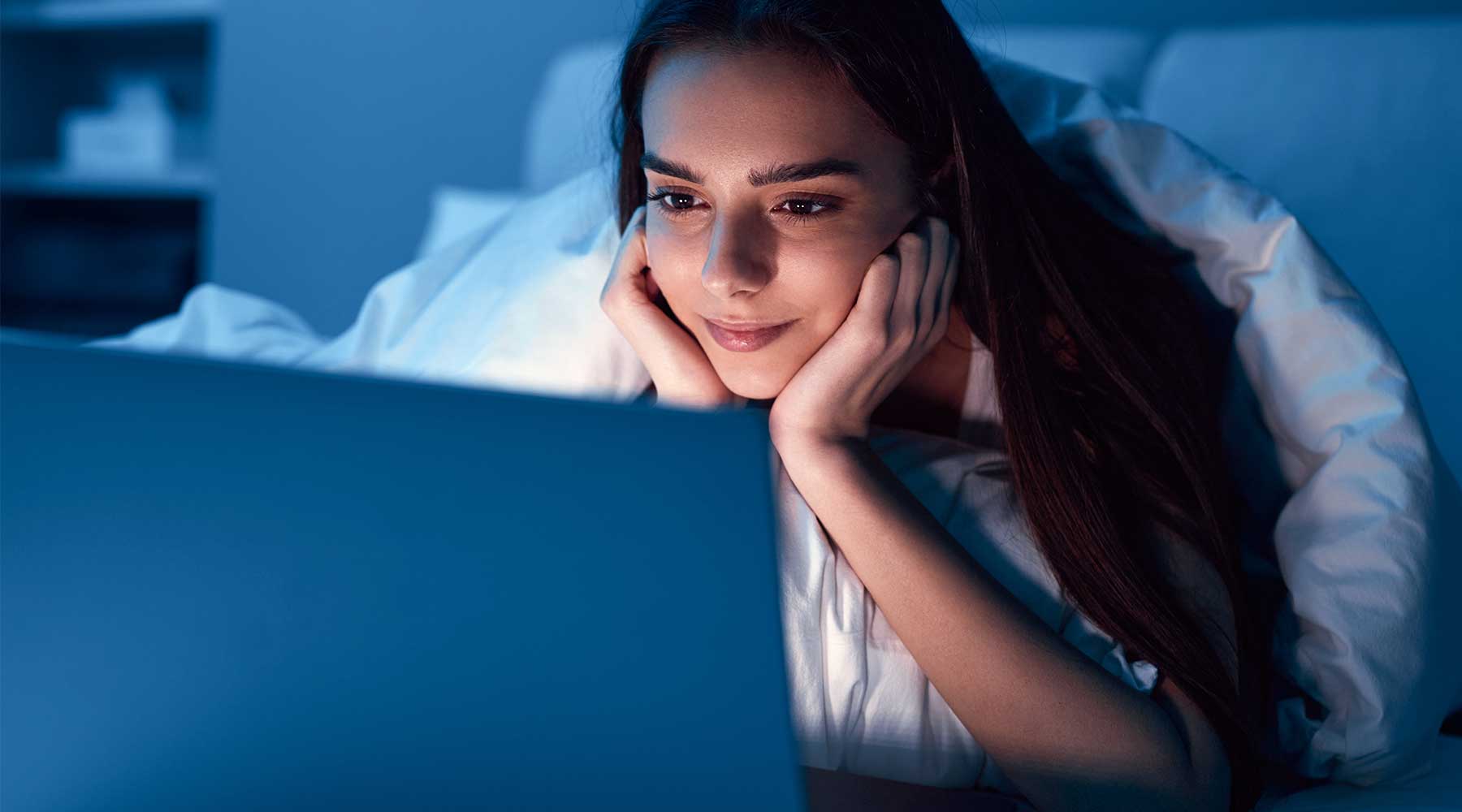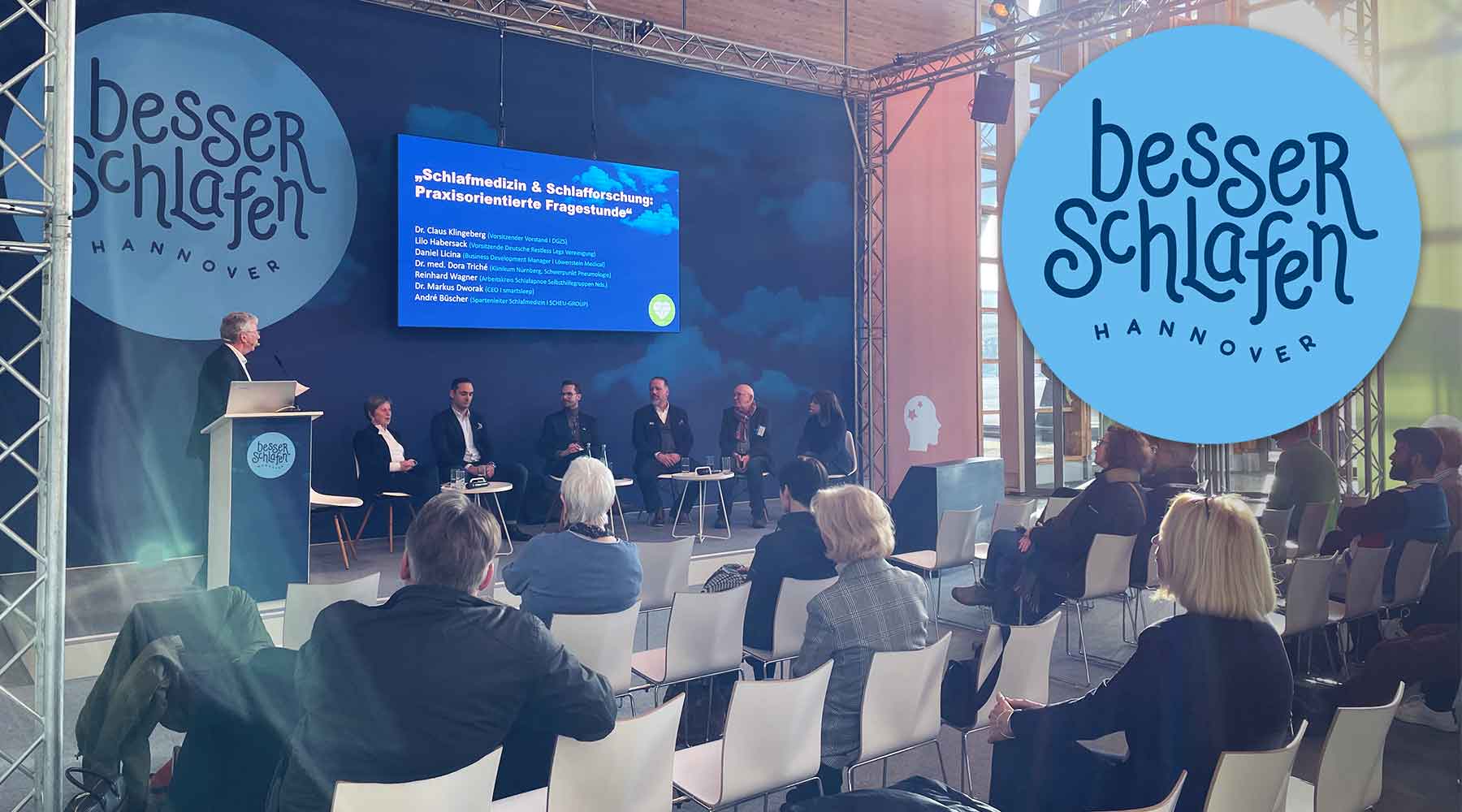
How do digital media work on sleep?
Digital media have become an integral part of everyday life, but how do
Table of contents
- Media consumption in everyday life
- The effect of media on sleep
- Tips for media consumption before sleep
- Conclusion
1. Media consumption in everyday life
Digital media have become an indispensable part of everyday life. Hardly anyone leaves the office without
Numerous studies prove that consuming digital media before bedtime significantly influences our sleep behavior. This depends primarily on the type of media and the time of use. Active media, such as gaming or social media, can have a greater impact on sleep than passive media such as television or podcasts, which tend to bombard us and don't require direct interaction.
2. The effect of digital media on sleep behavior
Lack of fatigue
Daylight has a major influence on our sleep-wake cycle. During the day, the sun emits a lot of "blue" light, which keeps us awake and active. As darkness falls in the evening, the production of sleep hormone melatonin, which makes us tired and causes us to fall asleep. Bright screens also emit large amounts of blue light and mimic daylight, which slows down melatonin production in the evening and makes us more likely to stay awake because tiredness and sleep are suppressed.

Tip: Dim the room lights a few hours before going to bed and try to avoid bright screens.
Smart You can also activate a blue light filter function on phones and screens or wear glasses with special lenses that filter blue light.
Stress instead of relaxation
A thrilling horror film that makes us feel the excitement or an adventurous video game that requires our full concentration activates our nervous system and can lead to excitement and a stress reaction in the body. Then we release more Stress hormone cortisol Our heart rate and blood pressure rise, our breathing becomes faster, and our body does everything it can to keep us awake, alert, and productive. This prevents us from relaxing and preparing for sleep, fatigue disappears, and falling asleep becomes significantly more difficult.
Less sleep
Digital media, and especially social media, often tempt us to stay online longer than we actually want. Various studies have shown that gaming and using social media release the happiness hormone dopamine. Thus, every interaction on the

Tip: Use your bed only for sleeping, not for watching TV and banish your
Smart Ideally, keep your phone out of the bedroom altogether. Schedule specific media-use and media-free times throughout your day, and use reminder functions, such as Instagram itself or special apps, to alert you to breaks after a certain amount of usage.
3. Tips for media consumption before sleep
Gaming
Whether on a computer, mobile phone, or game console, gaming requires our interaction and concentration, immersing us in the emotional experience and thus challenging our brain and nervous system. Especially exciting games with a high "thrill" factor trigger numerous stimuli in the nervous system. These so-called "arousals" sound like alarm bells in our brain, making us alert and alert. This suppresses the naturally occurring tiredness before bedtime, making it difficult for us to fall asleep after an intense evening of gaming.
In a study at the German Sport University in Cologne,
We have the best sleep tips especially for gamers in this article noted.Tip: Try to avoid challenging and immersive games with a high thrill factor in the evening, or allow yourself enough time to relax between your last game and bedtime. Simple, less challenging games or puzzles, on the other hand, are a good way to keep yourself busy before bedtime.
TV & Streaming
Films and series are a popular pastime and, for many people, part of their evening routine. Documentaries or light entertainment series that only require casual attention can help us relax and unwind after a stressful day, which has a positive effect on sleep and the ability to fall asleep. Exciting series with nasty cliffhangers, scary thrillers, or crime films, on the other hand, often keep us on the edge of our seats or puzzle over the action. This reactivates our nervous system, and we're also tempted to watch episode after episode for a little longer.
Tip: Instead of binge-watching a series, watch a relaxing documentary or light-hearted series before bedtime that doesn't strain your brain too much and helps you slowly wind down. The TV shouldn't be in your bedroom either, so your sleeping environment is exclusively for sleeping.
Podcasts & Music

Podcasts, music or certain sounds and Sounds can support the process of falling asleep and help you get to sleep more easily. Our hearing is active even during sleep and processes all the acoustic stimuli in our environment at night.Calming podcasts, bedtime stories or relaxing music can distract us from everyday stress, distract us from other things, and help us fall asleep. However, the music shouldn't be too exciting, and the stories shouldn't be too complex or exciting, as otherwise we'll be more likely to listen and think about the content. You can find detailed information about the effect of music or so-called white noise on sleep in this article.
Tip: Simple bedtime stories, white noises, and special sleep sounds can be easily integrated into your evening routine to gently support relaxation and falling asleep. It's best to use a
Sleep Set a timer and keep the volume at a moderate level so that the music doesn't play forever during the night and potentially wake you up again.
Social Media
Communication, socializing or comparing ourselves with others on social media can quickly become addictive and keep us glued to our
Tip: Limit social media to certain times of the day, set reminders for breaks and
Smart It's best not to take your phone to bed at all.
4. Conclusion
-
Digital media can make it difficult to fall asleep and lead to shorter sleep duration.
-
The impact of media depends on the content, type and timing of media consumption.
-
Exciting video games, series and podcasts keep us awake and disrupt the process of falling asleep
-
Soothing documentaries, bedtime stories or special sounds can help you relax and promote sleep.
Best wishes and see you soon!



Leave a comment
This site is protected by hCaptcha and the hCaptcha Privacy Policy and Terms of Service apply.